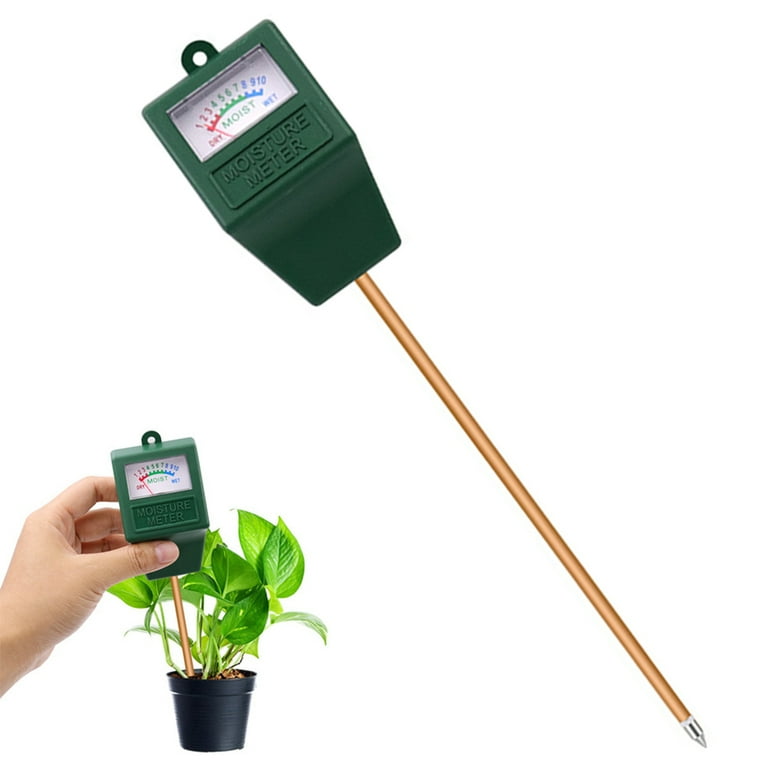The Ultimate Overview to Moisture Meters: A Comprehensive Summary and How They Can Save You Money
In the realm of structure upkeep, building, and various industries, the significance of accurately gauging dampness levels can not be overstated. Dampness meters act as essential devices in identifying and checking moisture material in materials, aiding in protecting against expensive damages and making certain the high quality of products. Understanding the subtleties of different kinds of wetness meters, their applications, and the potential cost-saving advantages they offer can be a game-changer for businesses and experts alike. Finding just how these devices can not just improve procedures but additionally add to financial cost savings is a journey worth getting started on.
Types of Moisture Meters
Numerous sorts of wetness meters are available for different applications in numerous industries. One typical kind is the pin-type wetness meter, which measures the electric resistance in between two pins placed right into a material. This type is appropriate for timber, drywall, and other building products. Pinless moisture meters, on the various other hand, usage electromagnetic sensing unit plates to check a larger location without causing damages to the product's surface area. These meters are optimal for promptly examining dampness levels in large areas such as floorings and wall surfaces.
Infrared dampness meters gauge the thermal buildings of a product to establish its dampness material non-invasively, making them helpful for applications where pin or pinless meters may not be appropriate. Comprehending the various types of wetness meters offered can help industries choose the most ideal device for their certain dampness measurement needs.

Advantages of Utilizing Moisture Meters

Additionally, utilizing dampness meters can lead to enhanced power performance. By identifying areas with high wetness levels, such as leaks or poor insulation, modifications can be made to improve power preservation and decrease utility costs. In farming settings, moisture meters play an important function in maximizing plant returns by enabling farmers to monitor soil moisture levels and make notified watering choices. Generally, the advantages of utilizing wetness meters cover throughout numerous sectors, giving cost-efficient remedies and advertising much better top quality control techniques.
How to Choose the Right Moisture Meter
Picking the proper wetness meter involves taking into consideration essential elements such as material compatibility, dimension variety, and calibration accuracy. When selecting a moisture meter, it's vital to make certain that the meter is appropriate for the particular product you will be screening. Different materials have differing electrical homes that can affect dampness readings, so picking a meter made for your material is crucial for precise results. Additionally, think about the measurement series of the wetness meter. Ensure that the meter can spot moisture degrees within the range required for your applications. Calibration precision is one more critical element to maintain in mind (Moisture Meter). Select a wetness meter with reputable calibration to ensure exact and consistent readings. Some meters may need periodic calibration changes, so comprehending the calibration procedure is essential. By very carefully assessing these variables, you can choose a wetness meter that fulfills your demands and provides precise dampness measurements for your jobs.
Correct Techniques for Moisture Meter Usage
To ensure exact wetness readings and take full advantage of the effectiveness of a dampness meter, using appropriate techniques is vital. When making use of a pin-type moisture meter, place the pins or probes into the product being tested till they make full call. By following these appropriate strategies, individuals can count on their wetness meter to give credible dampness levels, aiding in avoiding pricey damages or guaranteeing top quality in various applications.

Price Financial Savings Through Moisture Meter Applications
How can the tactical use of dampness meters lead to substantial cost financial savings across numerous sectors? In the agriculture sector, wetness meters help in establishing the optimum time for collecting plants, preventing excess or over-drying wetness website here that can impact the final item's top quality.

In addition, in the food processing market, wetness meters index are necessary for checking item top quality and ensuring conformity with safety regulations. By properly gauging dampness web content in foodstuff, makers can protect against wasting, keep freshness, and minimize waste, leading to significant price savings. Overall, the strategic application of wetness meters is a beneficial financial investment that can result in considerable cost decreases and boosted effectiveness across various industries.
Conclusion
In verdict, moisture meters are useful devices for determining and identifying moisture levels in numerous products. By making use of the best moisture meter and adhering to appropriate strategies, users can properly avoid pricey problems caused by excess wetness.
Dampness meters offer as important tools in identifying and keeping track of moisture web content in products, aiding in avoiding expensive problems and making certain the quality of items. Infrared dampness meters measure the thermal buildings of a product to determine its moisture web content non-invasively, making them useful for applications where pin or pinless meters may not be appropriate.Wetness meters use very useful benefits in accurately assessing and keeping track of dampness degrees in varied products and settings. In farming setups, wetness meters play a vital function in optimizing crop returns by making it possible for farmers to check dirt dampness degrees and make notified irrigation decisions.In conclusion, helpful resources moisture meters are valuable devices for detecting and gauging dampness levels in different materials.
Comments on “The Ultimate Overview to Selecting the Right Moisture Meter for Your Requirements”